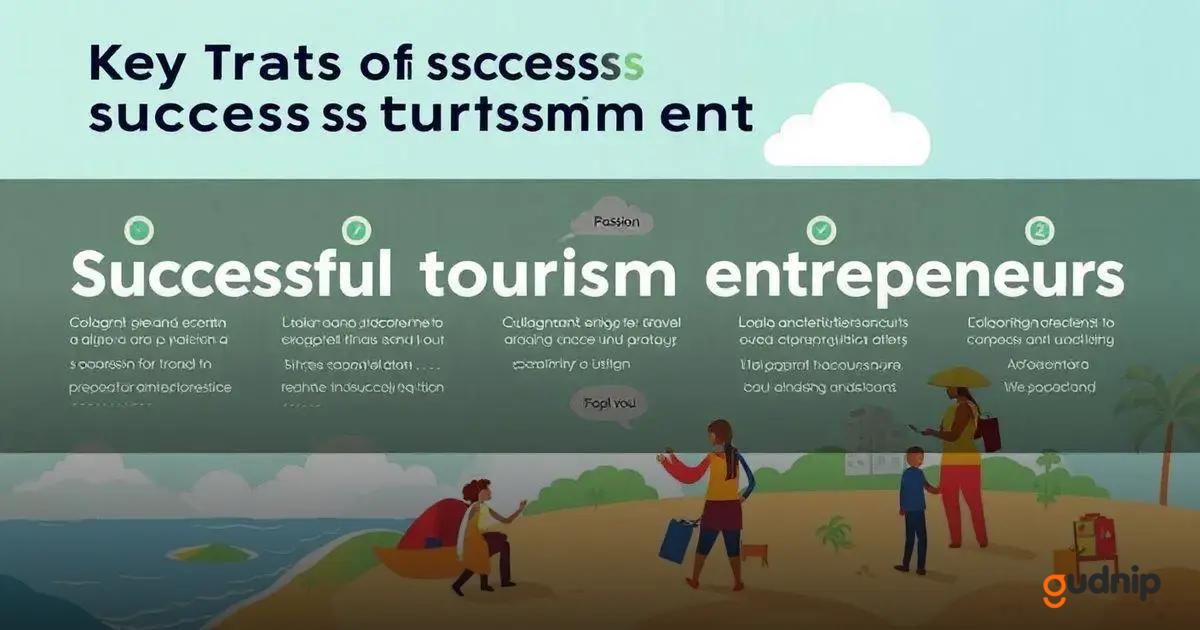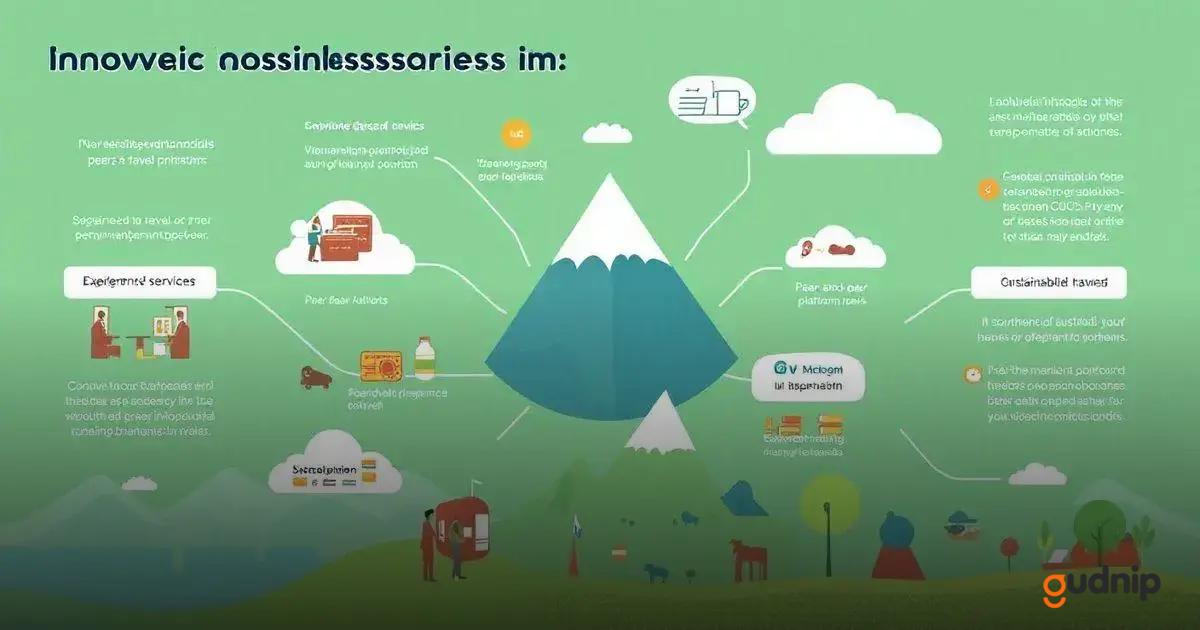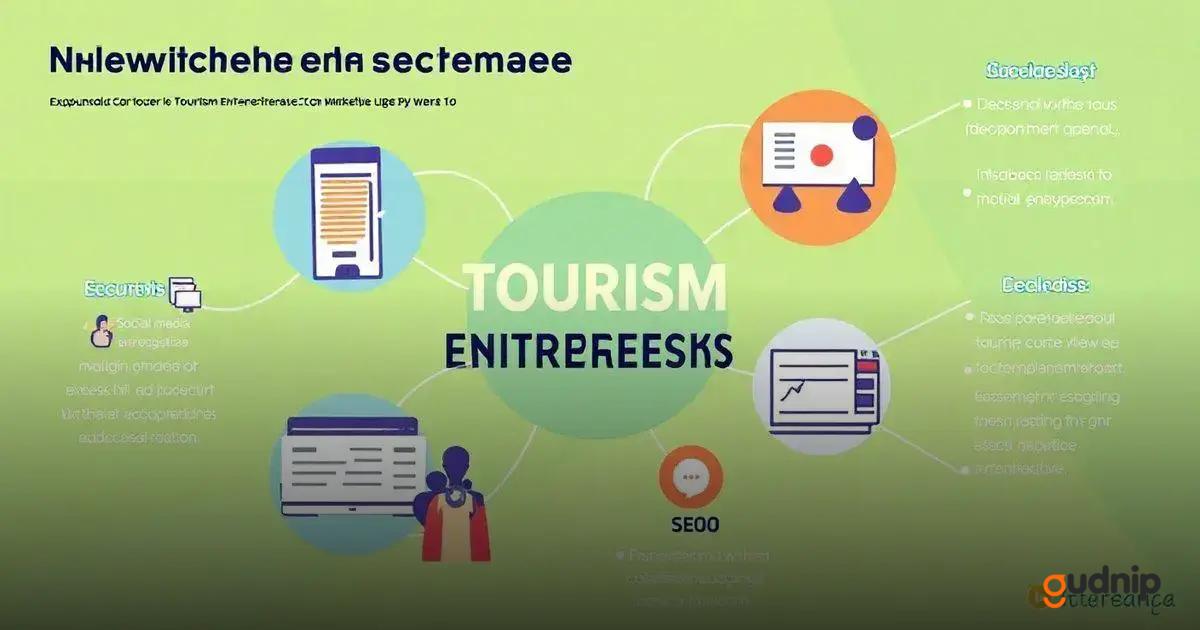Tourism entrepreneurship combines the thrill of travel with innovation and business savvy. It involves creating unique experiences and services that cater to the diverse needs of modern travelers while driving local economies and community growth.
Successful tourism entrepreneurs stay ahead by embracing trends, building strong networks, and offering creative, personalized travel solutions. They blend passion with strategy to stand out in a competitive market.
Are you ready to explore the opportunities in this exciting industry? Keep reading to learn how to turn your travel ideas into thriving business ventures.
Understanding Tourism Entrepreneurship
Tourism entrepreneurship is a dynamic and evolving field that combines the excitement of travel with innovative business strategies. Entrepreneurs in tourism create unique experiences and services that cater to the diverse needs of travelers worldwide. These businesses often range from travel agencies and tour operators to eco-friendly lodges and adventure companies.
The Importance of Tourism Entrepreneurship
Understanding tourism entrepreneurship is crucial for recognizing its impact on local economies and cultures. This sector creates jobs, boosts community engagement, and encourages sustainable practices. As more people seek memorable travel experiences, entrepreneurs play a vital role in fulfilling that demand.
Key Elements of Tourism Entrepreneurship
Several key elements define successful tourism entrepreneurship. First, recognizing market trends and consumer preferences is essential. Entrepreneurs must be adaptable and willing to innovate in response to changing demands.
Creativity and Passion
A strong passion for travel and a genuine desire to share unique experiences drive successful tourism entrepreneurs. They often combine their creativity with knowledge about travel to design attractive packages and services that stand out in a competitive market.
Networking and Collaboration
Building relationships within the tourism industry is another critical aspect. Collaborating with local vendors, tour guides, and accommodations can enhance the offerings of a tourism business and provide travelers with authentic experiences.
Adapting to Technology
In today’s digital age, embracing technology is vital for tourism entrepreneurs. Utilizing social media, online booking systems, and travel apps can help businesses reach a wider audience and streamline operations.
Key Traits of Successful Entrepreneurs in Travel

To thrive in the tourism industry, successful entrepreneurs possess several key traits that set them apart from the rest. These qualities not only help them navigate challenges but also allow them to seize opportunities in the ever-evolving travel market.
Passion for Travel
A deep passion for travel is fundamental to succeeding as a tourism entrepreneur. This passion fuels creativity and inspires entrepreneurs to develop unique experiences that resonate with potential customers.
Adaptability
Tourism entrepreneurs must be adaptable, responding effectively to changing trends and consumer preferences. Being open to feedback and willing to pivot strategies is essential for staying relevant in the market.
Strong Communication Skills
Effective communication is crucial for building relationships with clients, suppliers, and partners. Successful entrepreneurs articulate their ideas clearly and foster collaboration with others in the tourism industry.
Creativity
In a competitive industry, creativity is key. Tourism entrepreneurs must think outside the box to craft memorable experiences that stand out among numerous options available to travelers.
Business Acumen
A strong understanding of business principles, including finance, marketing, and customer service, is vital. Entrepreneurs should leverage this knowledge to make informed decisions and drive their ventures forward.
Resilience
The travel industry poses many challenges, from economic downturns to natural disasters. Successful tourism entrepreneurs show resilience by bouncing back from setbacks and continuously striving for improvement.
Networking Skills
Building a robust network of contacts in the tourism sector can lead to valuable opportunities. Successful entrepreneurs leverage these connections to gain insights, find partners, and grow their businesses.
Top Challenges in Tourism Entrepreneurship
Tourism entrepreneurship comes with its unique set of challenges that aspiring business owners must navigate. Understanding these challenges is essential for developing effective strategies.
Market Competition
The tourism industry is highly competitive, with numerous businesses vying for travelers’ attention. Entrepreneurs must continually innovate and differentiate their offerings to stand out.
Seasonality
Many tourism businesses experience fluctuations due to seasonality. This can lead to periods of low revenue, making it vital for entrepreneurs to plan financially and manage resources effectively.
Regulatory Hurdles
Tourism entrepreneurs often face a maze of regulations and permits that can vary from location to location. Navigating these legal requirements can be challenging but is crucial for operating legally and safely.
Changing Consumer Preferences
Consumer preferences in travel can shift quickly, influenced by trends, technology, and social changes. Entrepreneurs need to stay informed and responsive to these evolving demands to remain relevant.
Funding and Financial Management
Securing adequate funding for a tourism business can be difficult. Entrepreneurs must master financial management and explore various funding options, such as grants or loans, to support their ventures.
Technology Integration
As technology advances, tourism businesses are expected to keep pace. Integrating new technologies can be overwhelming for some entrepreneurs but is necessary for efficiency and customer satisfaction.
Sustainability Challenges
With the growing emphasis on sustainability, tourism entrepreneurs face pressure to implement eco-friendly practices. Achieving sustainability while remaining profitable can be a significant challenge.
Innovative Business Models in Tourism

Innovative business models in tourism are transforming the way travelers experience and engage with destinations. Entrepreneurs are creatively designing their services to meet the evolving demands of today’s consumers.
Experience-Based Models
Many tourism businesses shift their focus from traditional services to delivering unique experiences. This includes curated tours, immersive cultural experiences, and hands-on activities that allow travelers to connect deeply with local culture.
Subscription Services
Subscription-based tourism services are gaining popularity. Customers pay a regular fee to access exclusive travel deals, experiences, or content, making travel planning more convenient and affordable.
Peer-to-Peer Models
Peer-to-peer platforms, such as home-sharing and ride-sharing, are revolutionizing tourism. Entrepreneurs harness technology to connect travelers with locals, enhancing authenticity and lowering costs.
Sustainable Tourism Practices
Innovative models that emphasize sustainability are on the rise. Eco-friendly accommodations, carbon offset programs, and community-driven tourism initiatives attract environmentally conscious travelers.
Agile Business Structures
Tourism businesses are increasingly adopting agile structures to respond quickly to market changes. These adaptable frameworks help entrepreneurs implement new strategies and pivot based on customer feedback.
Virtual Tours and Digital Innovations
The rise of technology enables the creation of virtual tours and augmented reality experiences. These innovations allow travelers to explore destinations before booking and enhance their travel experiences.
Wellness and Health-Oriented Models
As wellness tourism grows, entrepreneurs are developing business models that prioritize health. This includes wellness retreats, yoga vacations, and holistic travel experiences that focus on mental and physical well-being.
Funding Opportunities for Travel Startups
Securing funding is essential for any travel startup aiming to thrive in the competitive tourism industry. Many funding opportunities are available to entrepreneurs looking to launch or expand their businesses.
Angel Investors
Angel investors are individuals who provide capital to startups in exchange for equity. They often offer guidance and industry connections, making them valuable partners for travel entrepreneurs.
Venture Capital
Venture capital firms invest in startups with high growth potential. While this route can lead to substantial funding, it often requires giving up a portion of ownership and convincing investors of your business model’s potential.
Crowdfunding
Crowdfunding platforms allow entrepreneurs to raise small amounts of money from many people. Websites like Kickstarter and Indiegogo can help travel startups raise funds while also gauging public interest in their products or services.
Government Grants and Loans
Many governments offer grants and loan programs specifically for small businesses. Researching these programs can provide essential funding without requiring repayment, as long as specific criteria are met.
Incubators and Accelerators
Joining an incubator or accelerator program can provide startups with initial funding along with mentorship, resources, and networking opportunities that promote growth and development.
Partnerships with Established Brands
Collaborating with established tourism brands can open avenues for funding. These partnerships may involve co-marketing or joint ventures, allowing startups to leverage existing resources and market presence.
Bank Loans
While traditional bank loans require solid business plans and collateral, they remain a common funding route for travel startups. Entrepreneurs must demonstrate their ability to repay the loan and the potential for profit in their ventures.
Marketing Strategies for Tourism Entrepreneurs

Effective marketing strategies are crucial for tourism entrepreneurs to attract customers and grow their businesses. With the right approach, you can enhance visibility and engage with travelers.
Social Media Marketing
Utilizing social media platforms like Instagram and Facebook helps tourism businesses reach a wider audience. Sharing captivating images and stories can inspire travelers to choose your services.
Search Engine Optimization (SEO)
Optimizing your website for search engines is vital. Use relevant keywords like “tourism entrepreneurship” to improve your rankings on Google and attract organic traffic.
Content Marketing
Creating valuable content, such as blogs or videos, can position you as an expert in the travel industry. Share travel tips, destination guides, or customer testimonials to engage your audience.
Email Marketing
Email marketing helps maintain communication with past and potential customers. Send newsletters featuring promotions, travel tips, and personalized offers to keep your brand top of mind.
Partnerships and Collaborations
Collaborating with other businesses, such as hotels or local attractions, can enhance your offerings. Joint marketing efforts can broaden your reach and provide more value for customers.
Reviews and Testimonials
Encouraging customers to leave reviews can build trust and credibility. Display positive testimonials on your website and social media to attract new clients.
Influencer Marketing
Partnering with travel influencers can help showcase your brand to their followers. Influencers can introduce your services to a large audience and enhance your credibility.
Sustainable Practices in Tourism Business
Sustainable practices in the tourism business are essential for protecting the environment and supporting local communities. By adopting these practices, tourism entrepreneurs can contribute positively to their surroundings.
- Eco-Friendly Accommodations: Choosing or creating eco-friendly lodgings can attract environmentally conscious travelers. This includes implementing energy-efficient systems, using renewable energy sources, and minimizing waste through recycling programs;
- Responsible Waste Management: Tourism businesses should prioritize responsible waste management practices. This includes reducing single-use plastics, encouraging recycling, and working with local waste management services to ensure proper disposal;
- Community Engagement: Engaging with local communities helps ensure that tourism benefits residents. This can involve supporting local businesses, hiring locals, and including community members in decision-making processes;
- Sustainable Transportation Options: Providing sustainable transportation options for travelers, such as biking or public transit, can significantly reduce a trip’s carbon footprint. Encouraging carpooling or using electric vehicles can also help;
- Wildlife Protection Initiatives: Implementing initiatives to protect local wildlife is vital in many tourism sectors. This includes promoting ethical wildlife viewing and supporting conservation projects that preserve natural habitats;
- Cultural Sensitivity: Promoting cultural sensitivity ensures that travelers respect local traditions and customs. Providing education about the local culture and encouraging respectful behavior can enhance visitors’ experiences;
- Carbon Offsetting Programs: Encouraging travelers to participate in carbon offset programs helps mitigate the environmental impact of their travels. This can involve contributing to reforestation efforts or supporting renewable energy projects.
FAQ – Frequently Asked Questions about Tourism Entrepreneurship
What is tourism entrepreneurship?
Tourism entrepreneurship involves creating and managing ventures within the tourism industry, focusing on providing unique travel experiences and services.
What are some key traits of successful tourism entrepreneurs?
Successful tourism entrepreneurs often exhibit passion for travel, adaptability, strong communication skills, creativity, and resilience.
What challenges do tourism entrepreneurs face?
Tourism entrepreneurs face challenges such as market competition, seasonality, regulatory hurdles, and changing consumer preferences.
What innovative business models exist in tourism?
Innovative business models include experience-based services, subscription services, peer-to-peer platforms, and sustainable tourism practices.
How can I secure funding for my travel startup?
Funding opportunities include angel investors, venture capital, crowdfunding, government grants, loans, and partnerships with established brands.
What marketing strategies should I use as a tourism entrepreneur?
Key strategies include social media marketing, SEO, content marketing, email marketing, partnerships, and influencer marketing.





